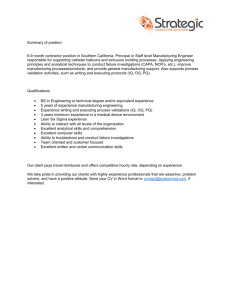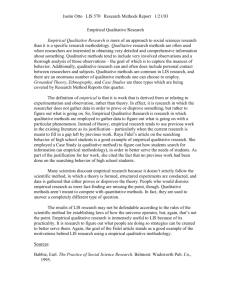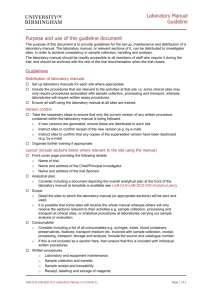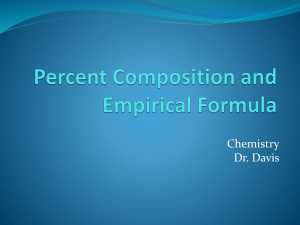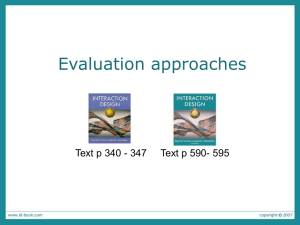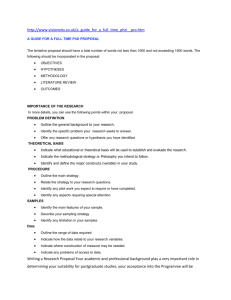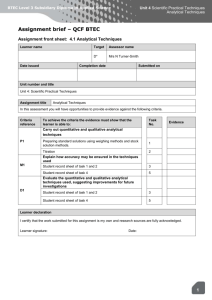Course description
advertisement
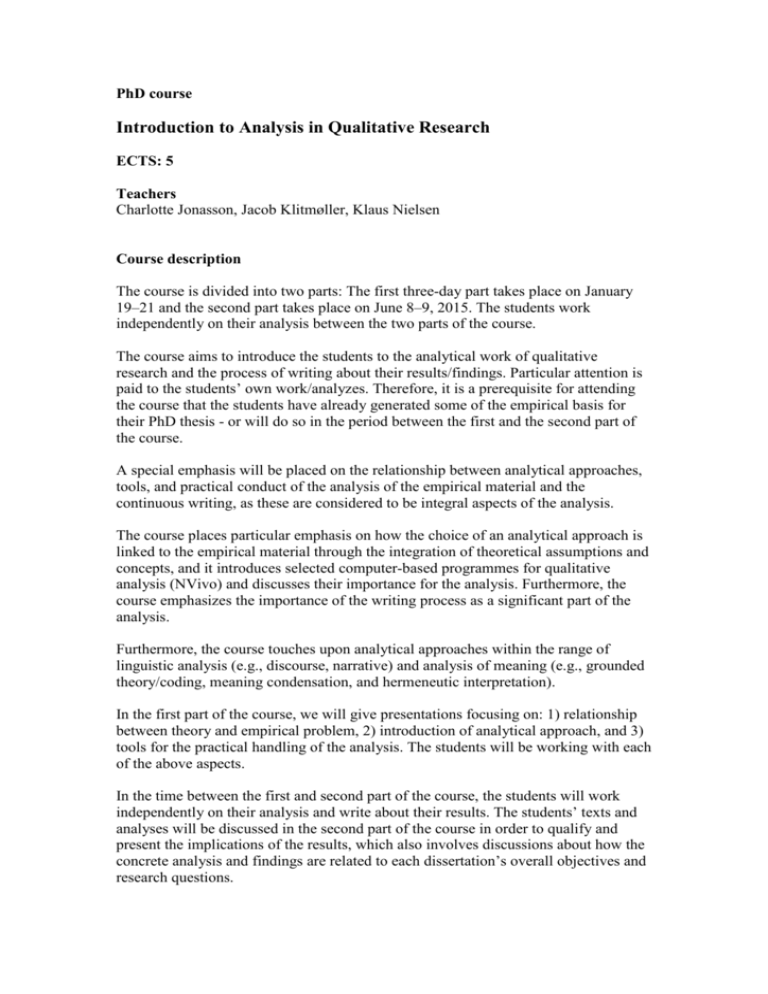
PhD course Introduction to Analysis in Qualitative Research ECTS: 5 Teachers Charlotte Jonasson, Jacob Klitmøller, Klaus Nielsen Course description The course is divided into two parts: The first three-day part takes place on January 19–21 and the second part takes place on June 8–9, 2015. The students work independently on their analysis between the two parts of the course. The course aims to introduce the students to the analytical work of qualitative research and the process of writing about their results/findings. Particular attention is paid to the students’ own work/analyzes. Therefore, it is a prerequisite for attending the course that the students have already generated some of the empirical basis for their PhD thesis - or will do so in the period between the first and the second part of the course. A special emphasis will be placed on the relationship between analytical approaches, tools, and practical conduct of the analysis of the empirical material and the continuous writing, as these are considered to be integral aspects of the analysis. The course places particular emphasis on how the choice of an analytical approach is linked to the empirical material through the integration of theoretical assumptions and concepts, and it introduces selected computer-based programmes for qualitative analysis (NVivo) and discusses their importance for the analysis. Furthermore, the course emphasizes the importance of the writing process as a significant part of the analysis. Furthermore, the course touches upon analytical approaches within the range of linguistic analysis (e.g., discourse, narrative) and analysis of meaning (e.g., grounded theory/coding, meaning condensation, and hermeneutic interpretation). In the first part of the course, we will give presentations focusing on: 1) relationship between theory and empirical problem, 2) introduction of analytical approach, and 3) tools for the practical handling of the analysis. The students will be working with each of the above aspects. In the time between the first and second part of the course, the students will work independently on their analysis and write about their results. The students’ texts and analyses will be discussed in the second part of the course in order to qualify and present the implications of the results, which also involves discussions about how the concrete analysis and findings are related to each dissertation’s overall objectives and research questions. The course aims to give the students: 1) A practical understanding of the significance of the choice of the analytical approach in relationship to the results/findings of the empirical work. 2) Concrete tools and a practical introduction to the analysis of empirical data within a qualitative study. 3) Know-how for writing about the results as an integral part of the analysis. 4) An opportunity to get feedback on a concrete, prepared part of an article or a chapter of a dissertation, including getting feedback on the quality of the results and implications. Please note the following: The course focuses on qualitative research projects. PhD students at Business and Social Sciences, Aarhus University, are given first priority. Participants are required to attend both parts of the course to receive ECTS credits. Participants are required, no later than one week prior to Day 1 of the course, to produce a brief description of their research project (1–2 pages), including background, aims of the project, materials and methods, anticipated results, perspectives, and main challenges of the project. The description is to be e-mailed to the PhD course coordinator (anette@psy.au.dk) and four copies are to be brought to Day 1 of the course.
